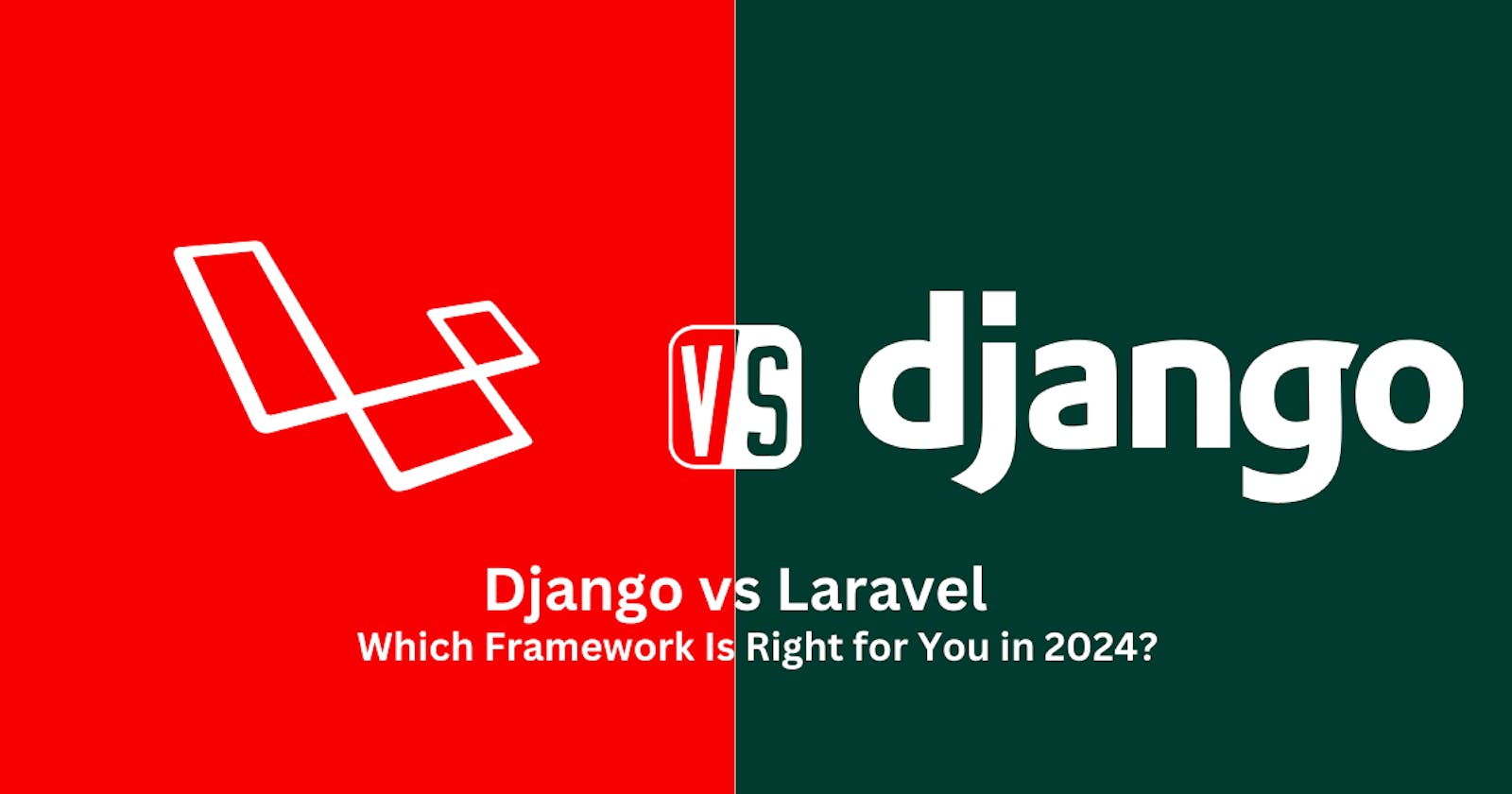Choosing the right framework for your web development projects is crucial, especially in the rapidly evolving landscape of technology. In 2024, two of the most popular frameworks continue to dominate discussions: Django and Laravel. Both offer powerful features and have dedicated communities, but which one is the best fit for your project? Let's delve into the comparison to help you make an informed decision.
1. Introduction to Django and Laravel
Django is a high-level Python web framework known for its simplicity and versatility. It follows the "batteries-included" philosophy, providing developers with everything they need to build web applications quickly. Django's primary goal is to make web development fast and easy.
Laravel, on the other hand, is a PHP framework that prioritizes elegance and simplicity. It aims to streamline common tasks such as routing, authentication, and caching, allowing developers to focus on writing clean and expressive code. Laravel's intuitive syntax and extensive documentation have contributed to its popularity among developers.
2. Performance and Scalability
Both Django and Laravel can handle high-traffic applications. However, the choice between the two may depend on specific project requirements.
Django is renowned for its scalability, thanks to its asynchronous support and robust caching mechanisms. It excels in handling complex applications with heavy loads, making it an excellent choice for large-scale projects.
Laravel, while not lacking in performance, may require additional configuration for optimal scalability. However, its simplicity and ease of use make it a preferred option for smaller to medium-sized projects.
3. Community and Ecosystem
The strength of a framework's community can significantly impact the development experience. Both Django and Laravel boast active and vibrant communities, offering extensive documentation, tutorials, and third-party packages.
Django benefits from being built on Python, which has one of the largest developer communities worldwide. This translates to a vast ecosystem of libraries, tools, and resources that enrich the Django experience.
Laravel, despite being younger than Django, has quickly garnered a dedicated following. Its community-driven approach has led to the creation of numerous packages and extensions, further extending its capabilities.
4. Learning Curve and Documentation
For developers, the learning curve associated with a framework can heavily influence their decision. Django prides itself on its comprehensive documentation, which covers everything from getting started to advanced topics. Its clear and concise documentation makes it accessible to developers of all skill levels.
Laravel also provides excellent documentation, with a focus on simplicity and practical examples. Its intuitive syntax and built-in features make it easy for beginners to grasp, accelerating the learning process.
5. Security and Maintenance
Security is paramount in web development, and both Django and Laravel take it seriously. Django offers built-in security features such as protection against common vulnerabilities like SQL injection and cross-site scripting (XSS). Its emphasis on best practices ensures that developers can build secure applications with confidence.
Laravel prioritizes security by integrating features like CSRF protection and encryption out of the box. Additionally, Laravel's robust authentication system simplifies user management and access control, reducing the risk of security breaches.
Conclusion
In conclusion, both Django and Laravel are formidable frameworks with their strengths and weaknesses. Django excels in scalability and performance, making it ideal for large-scale applications requiring robustness and reliability. Laravel, on the other hand, shines in simplicity and ease of use, making it a top choice for smaller projects and startups.
Ultimately, the decision between Django and Laravel development Services depends on your specific project requirements, team expertise, and personal preferences. Whether you prioritize performance, scalability, or simplicity, both frameworks offer powerful tools to bring your web development projects to life in 2024 and beyond.
